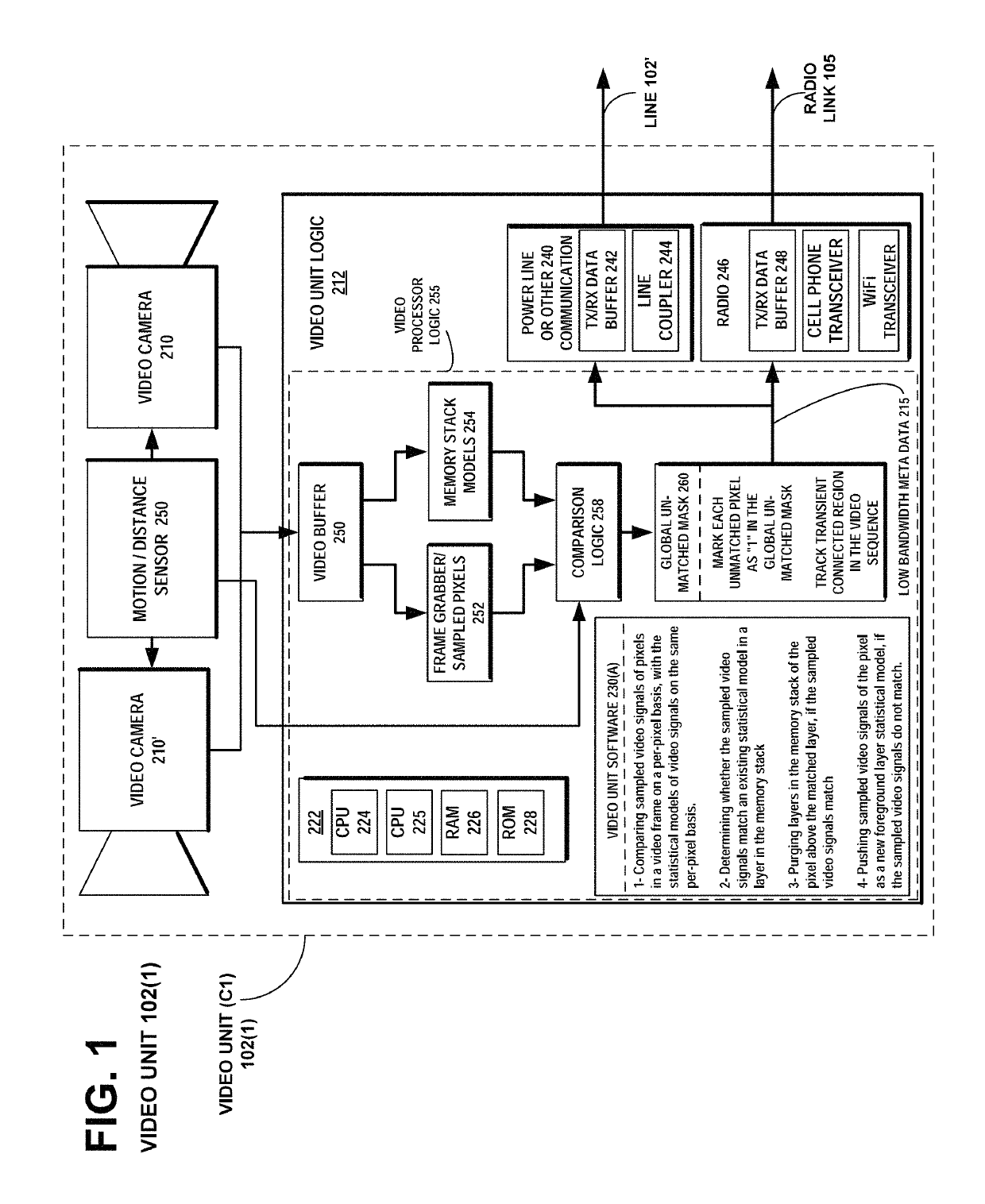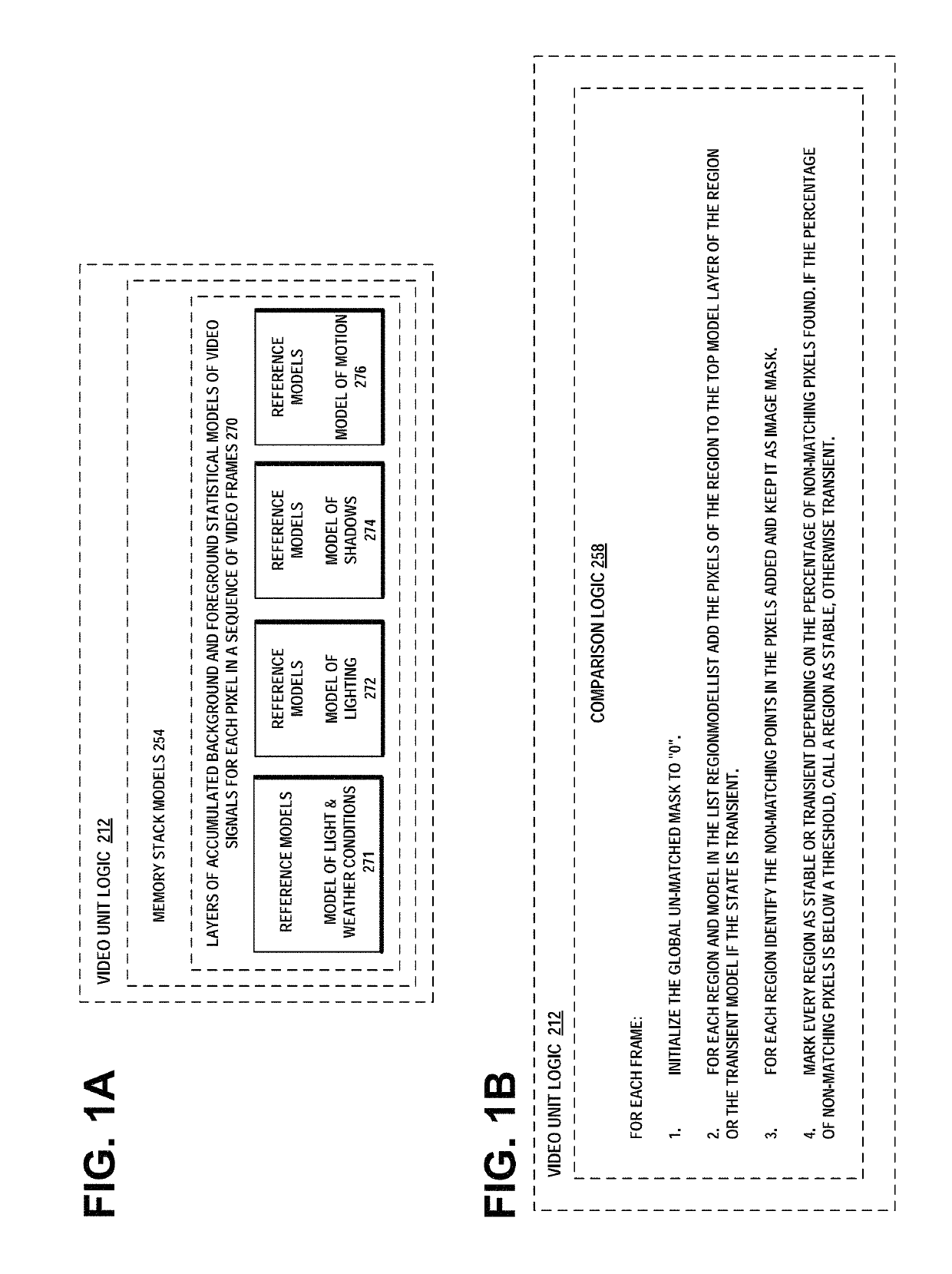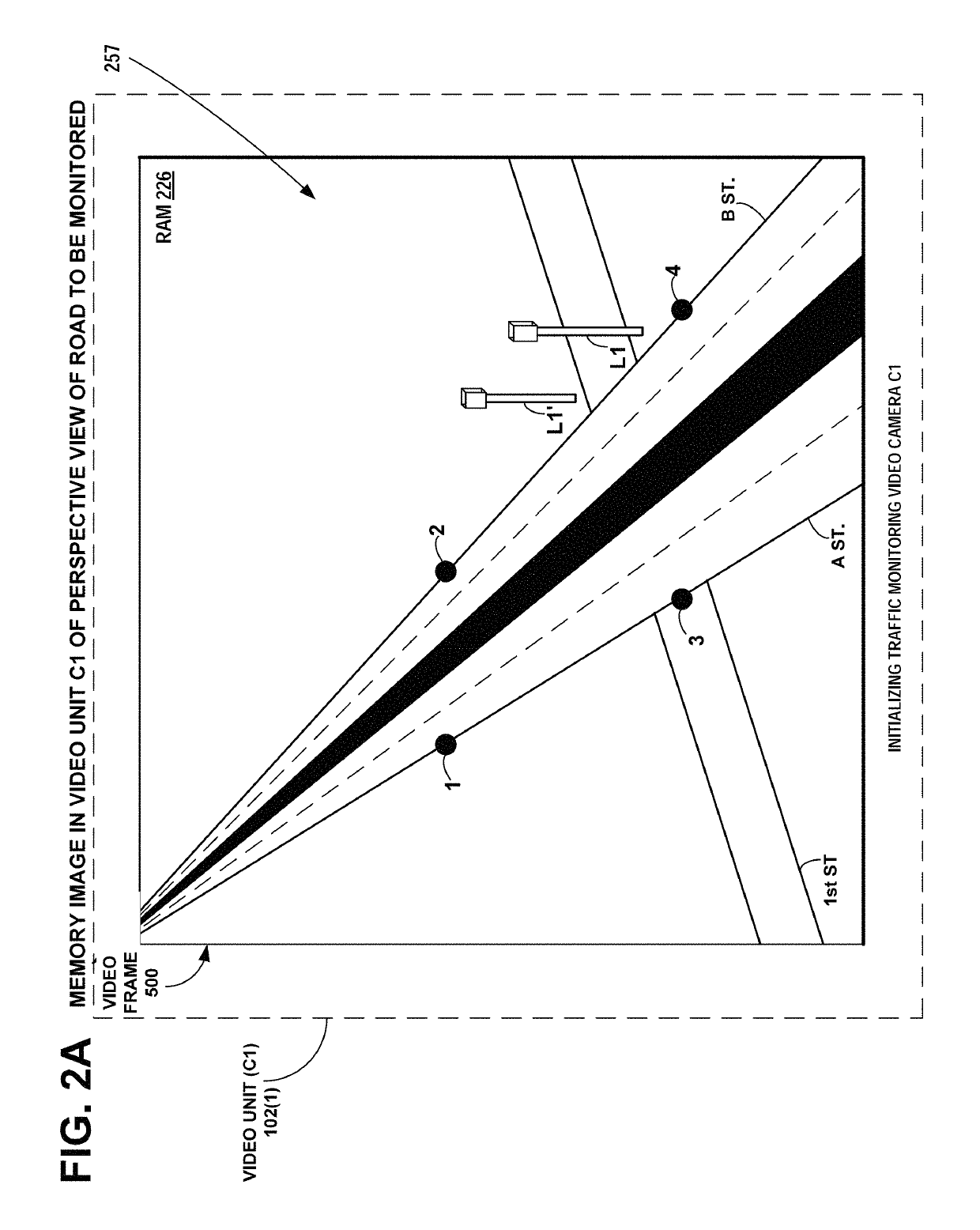Video data background tracking and subtraction with multiple layers of stationary foreground and background regions
a video data and background region technology, applied in the field of video analysis, can solve the problems of directing vehicular traffic into a collision with a foreground object, existing techniques have limitations, and do not keep track of an identified foreground region, so as to speed up the tracking of a foreground region, accurate identification of foreground objects, and improved detection sensitivity
- Summary
- Abstract
- Description
- Claims
- Application Information
AI Technical Summary
Benefits of technology
Problems solved by technology
Method used
Image
Examples
Embodiment Construction
[0021]Example embodiments of the invention solve the problem of keeping track of an identified foreground region, which is presently stationary, as continuing to be a foreground region. When multiple video frames are analyzed, this facilitates better tracking of moving object speed and direction.
[0022]In accordance with an example embodiment of the invention, video monitoring of parking facilities or vehicular traffic is performed by comparing sampled video signals on a per-pixel basis for each video frame, with accumulated background and foreground Gaussian mixer models of video signals on the same per-pixel basis for a sequence of video frames, to accurately identify foreground objects under a variety of shadow, color change, and lighting conditions.
[0023]FIG. 1 illustrates an example embodiment of the invention, showing the at least one video unit 102(1) located in the geographic area of 1st Street and 2nd Street, and A Street, B Street, and C Street. The video unit 102(1) includ...
PUM
 Login to View More
Login to View More Abstract
Description
Claims
Application Information
 Login to View More
Login to View More - R&D
- Intellectual Property
- Life Sciences
- Materials
- Tech Scout
- Unparalleled Data Quality
- Higher Quality Content
- 60% Fewer Hallucinations
Browse by: Latest US Patents, China's latest patents, Technical Efficacy Thesaurus, Application Domain, Technology Topic, Popular Technical Reports.
© 2025 PatSnap. All rights reserved.Legal|Privacy policy|Modern Slavery Act Transparency Statement|Sitemap|About US| Contact US: help@patsnap.com



